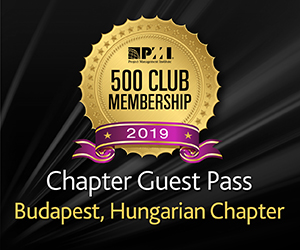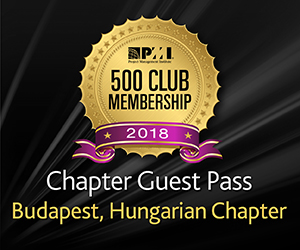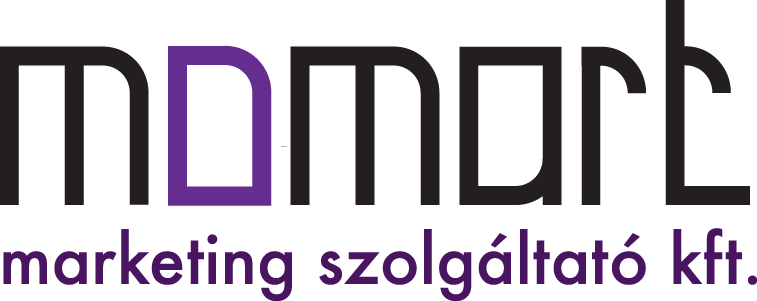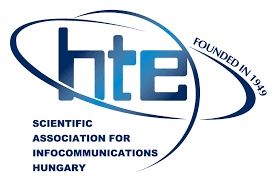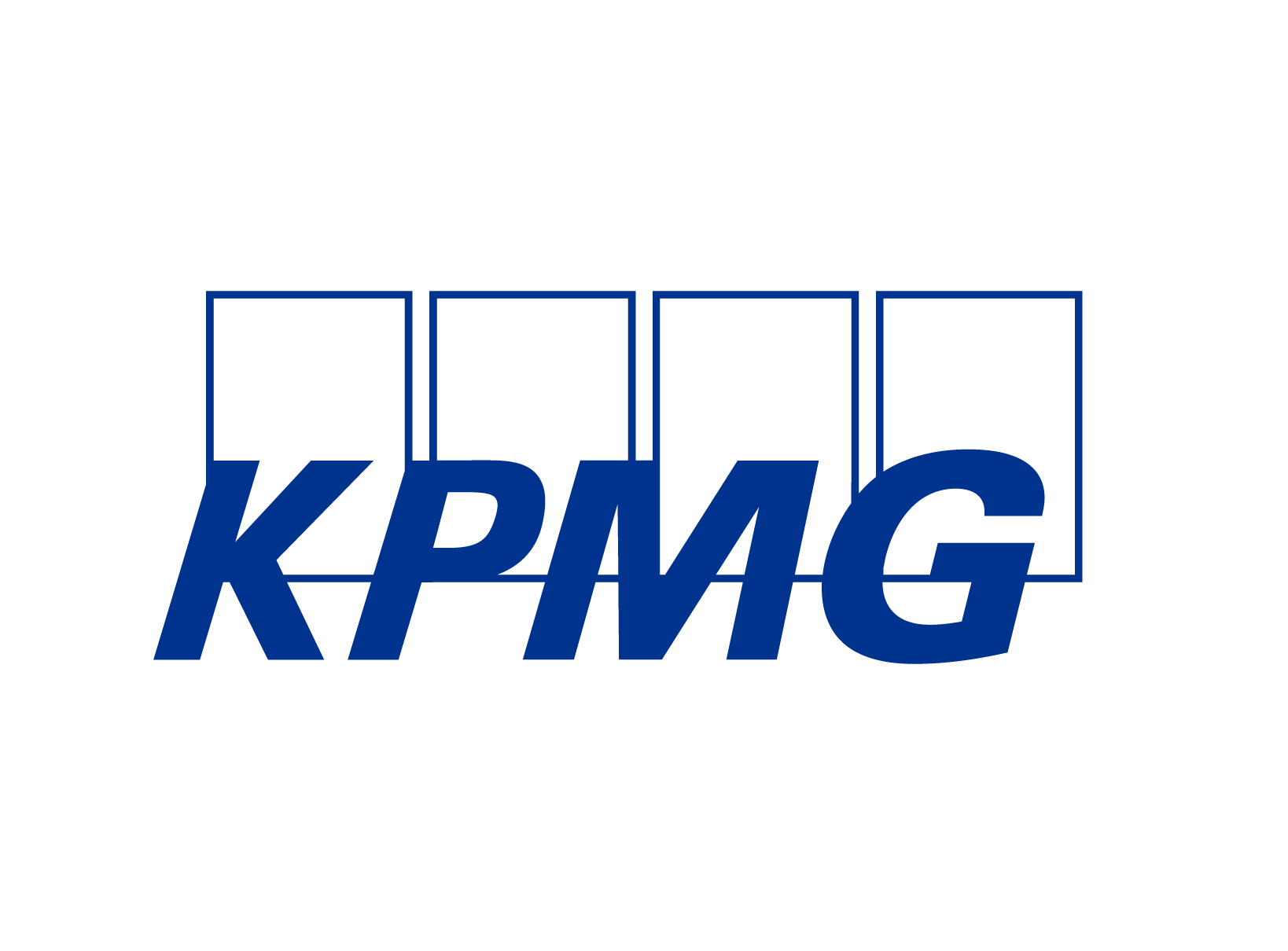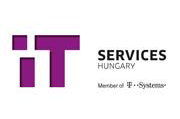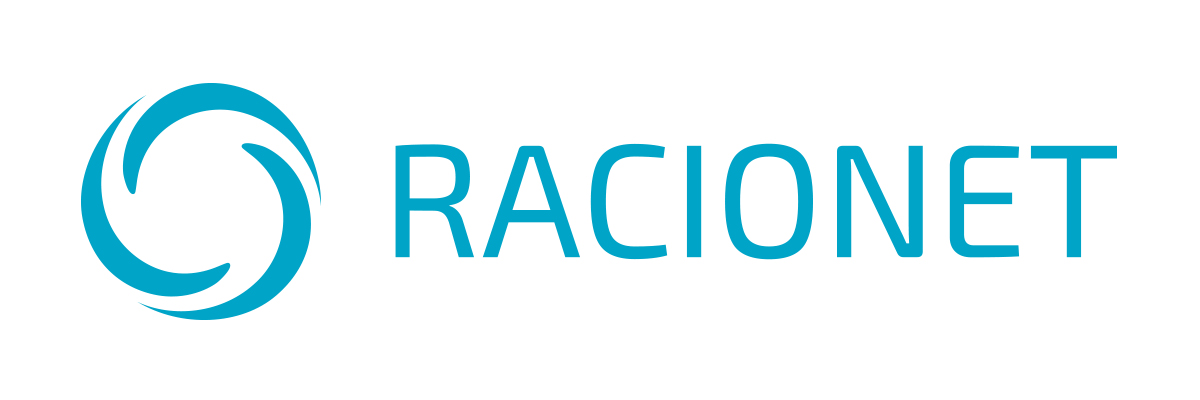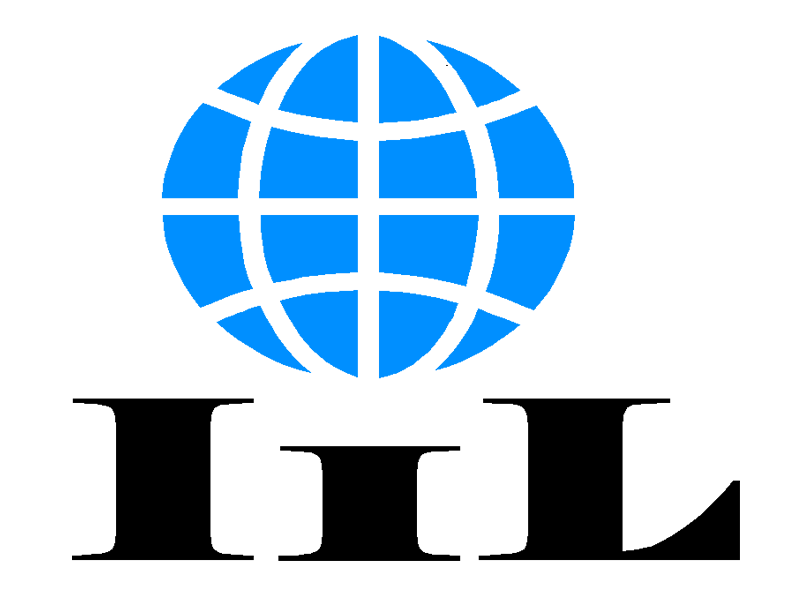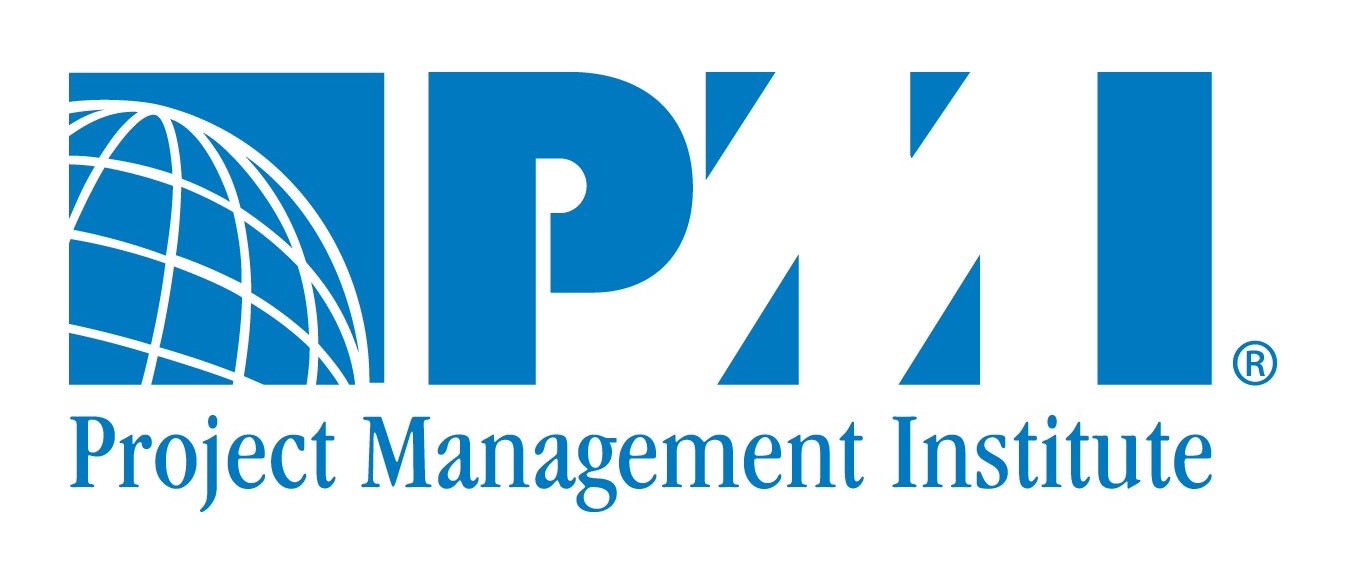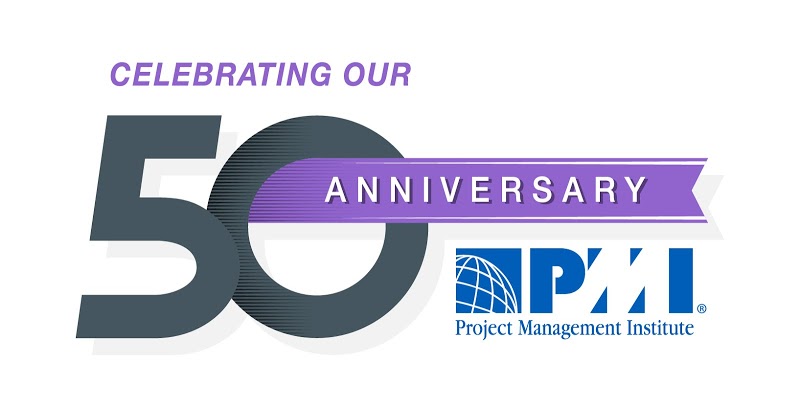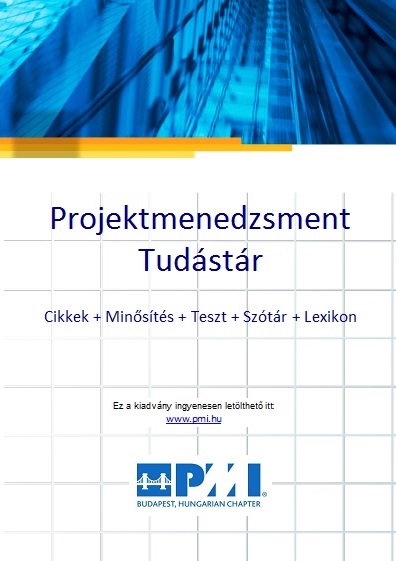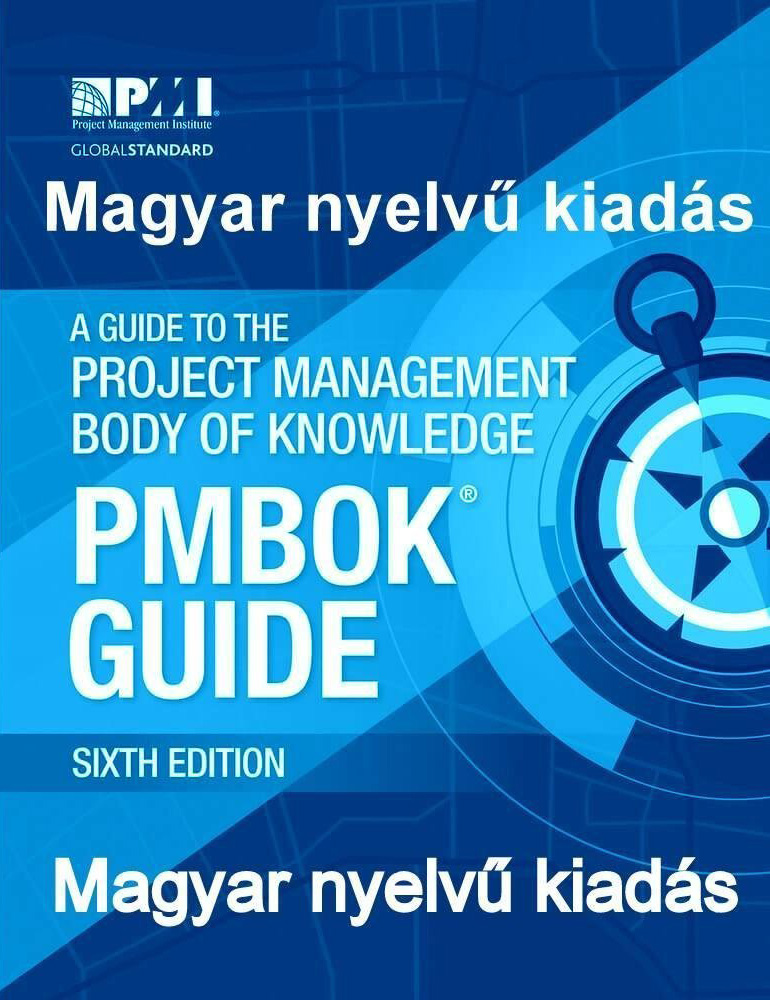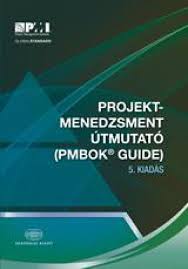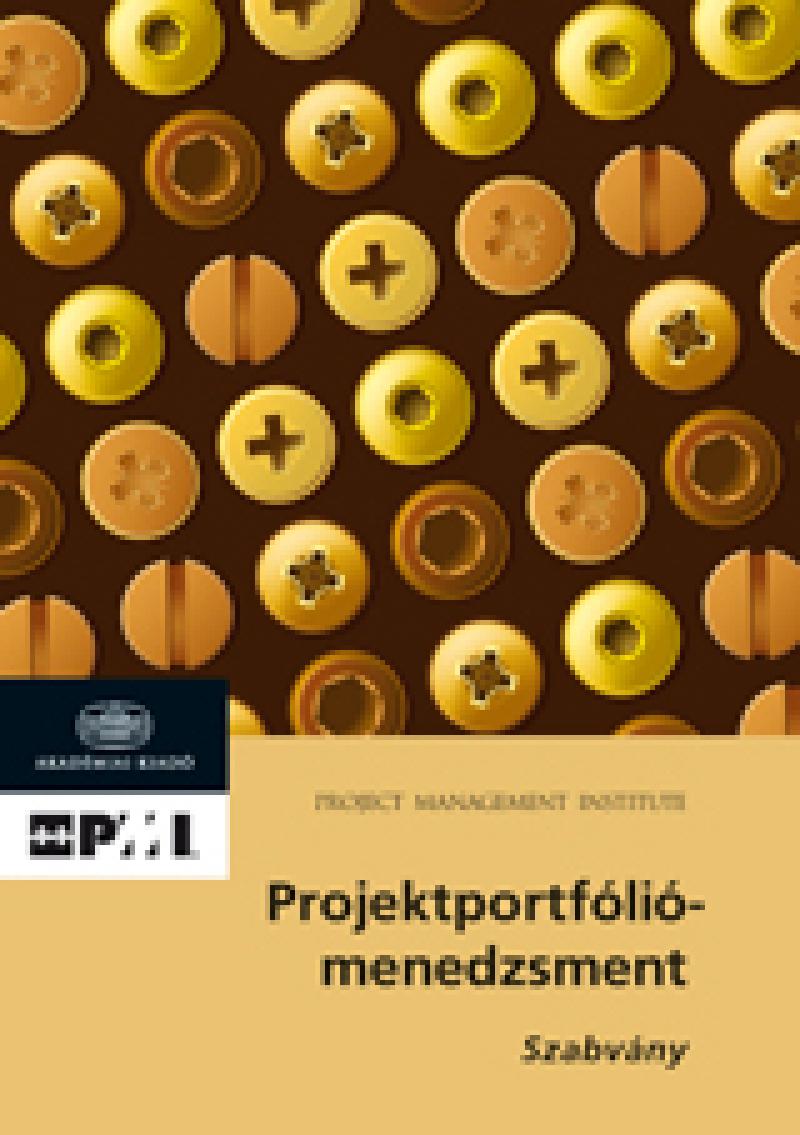"My first mentor was one of the two female managers that I worked for in my 32 years of work. She was an individual who took the time to coach me, give me guidance and was very instrumental in giving me that push I needed to get out of my comfort zone. My mentoring style today is based on how she mentored me. One thing I remember her saying to me was "if I had your common sense I would be the president of the company." I still think what a great thing to tell a young woman who is trying to find her way and give her such a boost." says Linda M. Wegrzynowski, PMP from ExxonMobil Business Support Center Hungary Ltd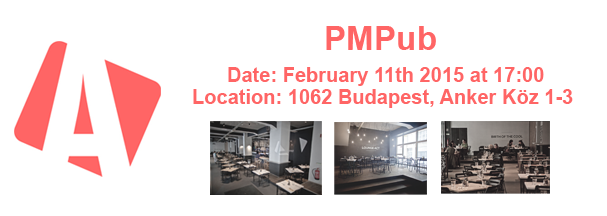
PMI Budapest, Hungarian Chapter addresses the development and promotion of women working in project management environments and works to maximize the availability of expertise in the project management profession. We actively promote investment in gender diversity to ensure that all project managers have the potential to develop a highly rewarding career, supporting both men and women in their efforts to maintain a balance between the many demands imposed on them whilst striving to retain their own identity.
Increasingly project management is being used as a management tool across all industry sectors for all types of non-business as usual activities. It supports business in the need for technically complex products and processes, ever-shortening design-to-market windows for new products, the need for cross-functional expertise and the implementation of outsourcing agreements.
Despite the progress and increasing use of project management, women are still under-represented in project management. A recent study estimates that the proportion of female project managers remains under 30%. Are women being shy? Are women promoting their accomplishments enough in organizations? Typically, women are not "self-promoting": they do the job and expect to be noticed for a job well done, and they expect to be promoted on this basis. Many studies have identified that women need to build networks early in their careers to help them move up regardless of industry sector, so how do they do this without spending all of their free time out at networking events every evening of the week?
These were the original thoughts why PMI Budapest, Hungarian Chapter decided to dedicate its next PMPub event, held on 11 February, 2015. to an interesting topic "Women in Project Management". It was a great honor that Linda M. Wegrzynowski, PMP - EMIT / INF / ITO Projects Manager, Applications Portfolio from ExxonMobil Business Support Center Hungary Ltd. accepted our invitation for an interview.
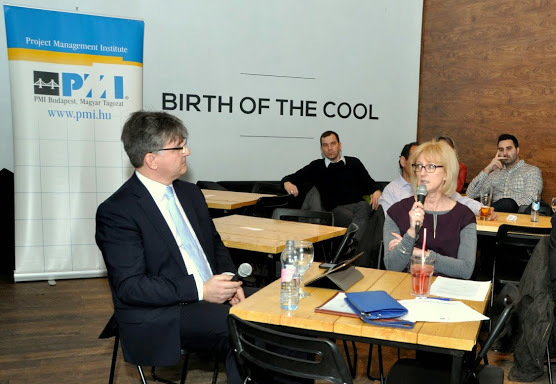
Thank you for accepting our invitation for this interview Linda. First of all let me ask you, how did you get your first job in this field?
My first official job in project management was replacing an outdated voice switch for a company of 1000 people. It wasn't planned, but more that I had been doing a number of small data center environmental upgrades, system replacements that were financially beneficial for the company and this project fell into that category. However, it differed from the others in that a strategic decision had to be made as VOIP was just becoming a factor in the voice environment and the organization's longer term plans needed to be taken into consideration in determining the deliverable.
Your story is very similar to mine; am I correct saying that you are an accidental project manager?
So yes an "accidental project manager". I then worked as a project manager on a SAP upgrade. Next stop was as a Business Analyst for our Upstream Business. Following that I did an expat assignment in Wales at an LNG (Liquid Natural Gas) terminal and then onto Budapest to become the Applications Portfolio Delivery Manager.
What is your experience, how do most people break into this field nowadays?
What I see happening in IT today are individuals starting in technical areas and gaining a basic understanding of that area and the company. Once they feel comfortable with the technology and the company, they start to look at what else the company is doing and what some of the longer-term opportunities are. Individuals new to project management see it as an opportunity to work with the newest technologies and staying close to the business, future looking rather than being behind the scenes in supporting and maintaining.
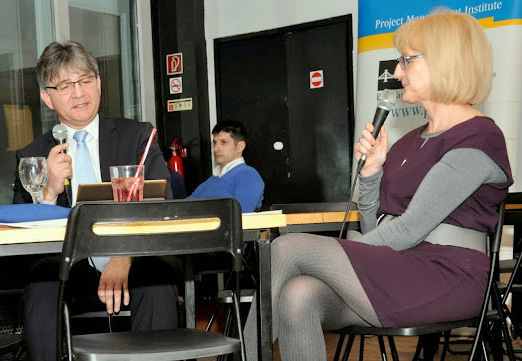
In project management there is a misconception that this is a male dominated profession. What do you think about this?
I do not think this is a misconception. Project management evolved from the field of engineering, therefore because more males than females study engineering in University there will be more Project Managers that are male. To try to change this, many companies have their female engineers working in the community schools to promote engineering as field of study. Moving into the IT field we continue to see more male than females in the "technology" related fields and therefore in general our population continues to be male centric, hence male dominated.
What do you think what drives companies to hire women for a project manager role? What needs to be done?
I like to think that companies will hire women if they have the required skills, experience, and a good record of accomplishment as a project manager. However, as we are all aware, this has not been the case and many companies have implement quotas to ensure organizational biases or attitudes do not affect their hiring practices.

What role models or mentors have you had in your many years in project management?
My first mentor was one of the two female managers that I worked for in my 32 years of work. She was an individual who took the time to coach me, give me guidance and was very instrumental in giving me that push I needed to get out of my comfort zone. My mentoring style today is based on how she mentored me. One thing I remember her saying to me was "if I had your common sense I would be the president of the company." I still think what a great thing to tell a young woman who is trying to find her way and give her such a boost.
My other mentor is a great Project Manager. I had the opportunity to work for this individual when we were doing an upgrade on our SAP system in Canada. My role was to manage one track of the upgrade as well as the Project Management Office. I would watch as he would spend a significant part of each day walking around visiting individuals on the project team and/stakeholders and sponsor. At our monthly project review meeting he already knew exactly what concerns were going to be raised and how he was going to handle them. I don't know if he ever read the PMBOK or studied PMP but it certainly could have been modeled after his communication style.
Other than my work, in my personal life I would say my father also had a significant impact on my view towards traditional male/female jobs. I grew up on a small farm in Canada and I am the second eldest of 4 children...three girls and the youngest a boy. As there were no older boys, my older sister and I did the majority of work on the farm with my father. We built fences, built barns, picked rocks, logged trees, worked in a sawmill, it was a treat to be able to stay in the house and cook and clean with my mother. Therefore, while my father had a very set attitude about women in terms of working outside the home he also expected his daughters to work on the farm as a boy would. As a result, I do not look at jobs in regards to which gender should do them, but do I want to do that job or not.
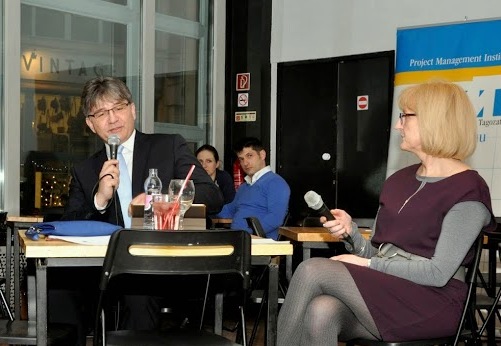
In your experience, have you found that men and women have different management styles when it comes to managing projects or project teams?
Yes, of course. In general, terms, women take on a more coaching, mentoring style while men will be more authoritative or directive. There are some schools of thought that women make better project managers, however I believe that if you have strong planning, organizing and communication skills combined with the technical background and ability to get things done, you would be good at managing projects or project teams.
As a project manager knowing your strengths and weaknesses in your management style will enable you to build support with individuals who have stronger skills in a management style that you are weaker in. No one person excels in all the areas and it is only those who figure out where they need help will succeed.
Women may have a "leg up" in this area as they do spend more time coaching and mentoring, staying outward focused that they may adapt to the project team changes more quickly.
Do you believe that there is this so called "Glass ceiling" for women who have leadership roles in project management?
The term "Glass Ceiling" first appeared in print in 1979, just as I was joining the workforce. Yes, I do believe there is a Glass Ceiling. However, today it applies to many more individuals than just women, specifically minorities from different cultural background, sexual orientation, religious beliefs etc. If individuals have the skills and experience they should get the same job offers and not have to deal with attitudes or organizational biases. As we have learned from recent history, this is not the case and many organizations have had to put in quotas to ensure attitudes and organizational biases do not affect opportunities for individuals who are qualified.
What advice would you give to a man who manages women project managers?
Do not think you have to fix female project manager problems. Often when female project managers are dealing with a difficult part of their project, they may come to you for advice. Women often are looking for a confidant where they feel safe to "vent" some frustration, be angry, or even sometimes cry. Seeing this men, instinctively think they need to fix the problem, and start to tell the female project manager what to do. The best approach for men in this situation is to listen, listen, listen, be a good listener, give support for how difficult the situation maybe and offer some help in the right direction...coaching rather than directing. And don't be surprised if you just listen and are not required to give any advice.
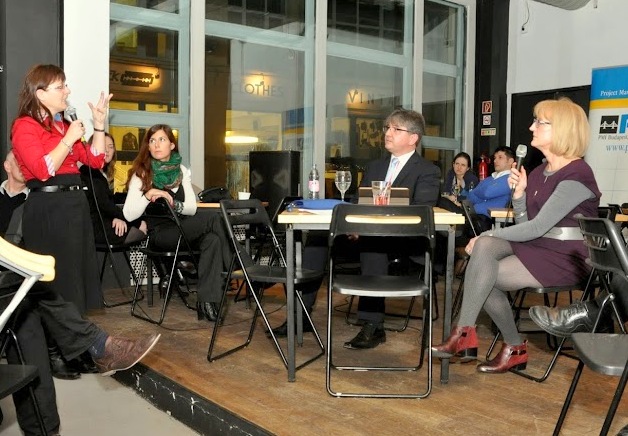
What would you consider as traits for women who are working on project management teams?
As I mentioned earlier, excellent communication, organizational and coordination skills, along with technical knowledge in the given field. Understand project management (PMP) and develop a very strong network of individuals in both the project management profession as well as the technical skill area.
Today we are talking about this topic "Women in Project Management". Do you believe that one day it won't be a separate topic?
Yes, I do agree that eventually it won't be a separate topic and in some companies it isn't a separate topic anymore. Many companies now have females in traditionally male dominated roles, such as engineering. More and more women are choosing this as their career and more women will follow suit. What I do believe is that there will always be attitudes and biases and it will just move on from women to other "minorities."
What professional development opportunities would you encourage to women who are getting into project management as a professional career to pursue?
Get your PMP! And look for opportunities to work on projects of all sizes and types. Don't get hung up on the fact that the job title needs to say Project Manager......that will come. Pursue opportunities as a project coordinator, track lead, deployment coordinator, cost and scheduling engineer. Expand your knowledge of all the project roles and ensure you develop your technical/business skills at the same time.
What advice would you give to a woman who is looking for a career opportunity in project management or already in this field?
I always encourage individuals to think of their career as a triangle. On one point you have your technical/business process skills; second point you have your communications/leadership skills and on the third point your have industry knowledge...how well do you know the business you are in. During your career you will need to work on jobs that give you opportunities to build each of these areas.
If you get to the end of the year and all your accomplishments are in the technical area, you need to work to balance it out. The competition is tough and you need to keep focus on all the areas. Early in your career more of your time is spent on the technical/business skills, but as you progress you should start to see more of your leadership and industry skills developing. Just do a check to make sure you know where you are and keep it balanced.
What is a typical career path in this field for a woman?
A majority of women are not coming to the Project Management field through the technical areas. I see them coming into Project Management from fields that are complimentary like Business Management, Financial etc.
How often are there advancement opportunities? Is most advancement within or across organizations?
I have no way of knowing the frequency of advancement opportunities. However, using what I know from the PM Industry as a whole, the advancement will be there as the need is growing. Generally, advancement varies between lateral opportunities and upward opportunities and often is from within the organization, as I believe it is always easier to train a Project Manager than to train someone about company culture and specific processes.
What do people in your field look for in a candidate? (Skills, personal qualities, etc.)
While I would like to think it is the education, training and/or certifications, ultimately it comes down to experience. Even today, a good project manager needs many projects under their belt to become a high quality PM.
What personal qualities are necessary for a woman in your job to thrive?
Initiative, confidence, ability to capitalize on an opportunity when you see one and have courage to make the tough decisions, rather than just trying to manage through it.
Are there any books, journals, web sites, resources, associations, etc. that someone looking to break into your field should be aware of?
PMI and the local chapter as well as a member of the CEB (Corporate Executive Board (UK) Ltd. In regards to reading, this is what's on my Kindle now - PMBOK Guide; How to Develop a Brilliant Memory by Week; Team Spirit: Life and Leadership on One of the World's Toughest Yacht Races; Phoenix Project
What do you like best about your job?
Best – The People! Helping individuals see the opportunities, face their challenges and being successful. Mentoring and motivating individuals, getting them excited about what they are doing.
What do you like least about your job?
Least – In project management it is the continual work to keep people focused on the end product/service. Even after doing all the communications, all work to get everyone on board, as a project manager you still need to exert a lot of effort on pulling people along to the ultimate objective.
What is your typical day like?
Like most of us, my day usually starts with a review of my emails and responding to the critical ones. Holding or preparing for communications meetings, sharing our portfolio performance. Attending Gate reviews with my PM's and Program Managers and helping remove any roadblocks or resolving issues. Each day I try to spend some time either planning or taking actions to implement efficiencies and option to make work easier for my PM's.
Thank you for the interview!

